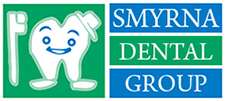Sudden Tooth Pain? Here’s What Might Be Causing It
We've all experienced that sudden, sharp jolt of tooth pain at some point in our lives. Whether it's a fleeting moment or ongoing discomfort, tooth pain can be incredibly frustrating and disruptive to our daily routine. But fear not! In this blog post, we'll delve into the various causes behind sudden tooth pain and provide you with valuable tips on how to address and prevent it.
So, if you're currently dealing with a throbbing toothache or just want to be prepared for any future dental emergencies, keep reading! We've got you covered with expert insights and practical advice that will help put that smile back on your face in no time. Let's get started on unraveling the mystery behind sudden tooth pain!
Sudden Tooth Pain: Causes
When it comes to sudden tooth pain, there are several potential culprits that may be causing your discomfort. One common cause is dental decay or cavities. If you've been neglecting your oral hygiene routine or indulging in too many sugary treats, bacteria can break down the enamel and lead to painful cavities.
Another possible cause of sudden tooth pain is an abscessed tooth. This occurs when a bacterial infection reaches the root of the tooth, resulting in inflammation and intense throbbing pain. It's important not to ignore this condition as it can lead to serious complications if left untreated.
Sometimes, tooth sensitivity can also trigger sudden bouts of pain. Exposed dentin, which lies beneath the protective layer of enamel, can become sensitive to hot or cold stimuli and cause sharp pains when exposed.
In some cases, a cracked or fractured tooth may be responsible for your sudden discomfort. Whether from biting into something hard or sustaining an injury during physical activity, cracks in teeth can expose nerves and result in excruciating pain.
Don't overlook the possibility of gum disease as a contributor to your sudden toothache woes. Advanced stages of gum disease can lead to gum recession and expose sensitive areas of teeth roots – leading to heightened sensitivity and occasional bursts of pain.
What to Do If You Have Sudden Tooth Pain
Experiencing sudden tooth pain can be a real downer. It can come out of nowhere and disrupt your day, making it difficult to eat or even concentrate on anything else. But fear not! There are steps you can take to alleviate the discomfort and get back to living pain-free.
First things first, try rinsing your mouth with warm saltwater. This simple solution can help reduce inflammation and soothe any soreness you may be experiencing. If that doesn't do the trick, over-the-counter pain relievers like ibuprofen or acetaminophen might provide some temporary relief until you're able to see a dentist.
It's important not to ignore sudden tooth pain, as it could be a sign of an underlying issue such as dental decay or infection. If the pain persists for more than a day or two, it's best to make an appointment with your dentist right away. They will be able to evaluate the cause of your discomfort and recommend appropriate treatment options.
In the meantime, avoid chewing on hard foods or using the affected area unnecessarily. Stick to softer foods that won't aggravate the pain further.
Remember, prevention is always better than cure when it comes to dental issues. Maintain good oral hygiene by brushing twice a day with fluoride toothpaste and flossing regularly. Schedule regular check-ups with your dentist so they can catch any potential problems before they escalate into painful situations.
How to Prevent Sudden Tooth Pain
Preventing sudden tooth pain is crucial for maintaining good oral health. While some dental issues may be unavoidable, there are certain steps you can take to reduce the risk of experiencing sudden tooth pain.
First and foremost, consistent oral hygiene practices are essential. Brushing your teeth at least twice a day with fluoride toothpaste helps remove plaque and bacteria that can lead to decay and gum disease. Don't forget to floss daily as well, as it reaches areas between teeth where brushing alone may not reach.
Regular visits to the dentist are also important in preventing sudden tooth pain. Dental check-ups allow your dentist to identify any potential problems early on before they escalate into more serious conditions. They will also perform professional cleanings to remove stubborn plaque buildup.
Maintaining a healthy diet is another key factor in preventing tooth pain. Limiting sugary foods and drinks reduces the risk of cavities while consuming calcium-rich foods like milk, cheese, and yogurt strengthens teeth.
Wearing protective gear during sports or physical activities can help prevent accidents that could result in dental injuries.
By following these preventive measures consistently, you can significantly decrease the likelihood of experiencing sudden tooth pain and maintain optimal oral health for years to come!
Conclusion
Sudden tooth pain can be a real shock to the system, but understanding the possible causes can help you take appropriate action. Whether it's due to dental issues like tooth decay or gum disease or external factors such as teeth grinding or sinus problems, there are steps you can take to address and prevent sudden tooth pain.
By being proactive about your oral hygiene routine and seeking professional dental care when needed, you can minimize the chances of experiencing sudden tooth pain. Remember that prevention is key when it comes to maintaining a healthy smile!
So if you find yourself wincing from unexpected twinges of toothache – don't panic! Take note of what might be causing this discomfort by considering various factors such as dental conditions, lifestyle habits, or even sinus problems. With proper care and attention, you'll soon be back on track and enjoying life without any unwelcome surprises from those pearly whites! Call us to learn more.
Office Hours
MON - THU8:00 am - 5:00 pm
FRI - SUNClosed












